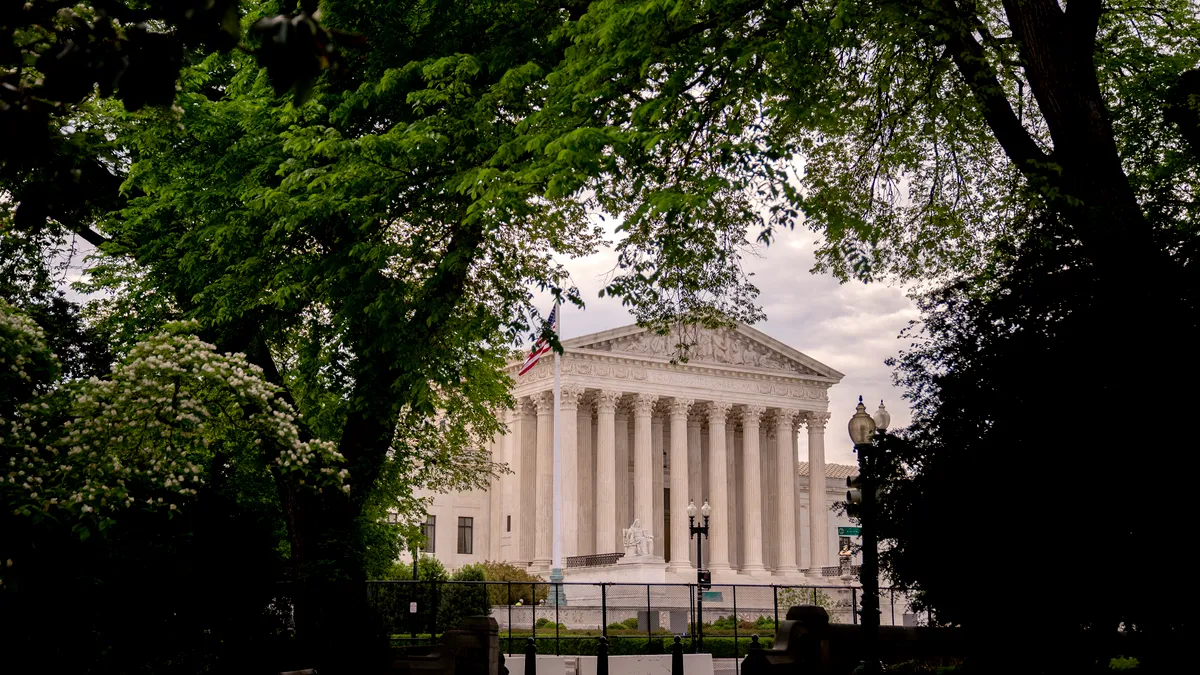Dive Brief:
- The U.S. Supreme Court announced Wednesday it will consolidate appeals regarding court-ordered stays placed on two of the Biden administration's vaccine mandates, and the court will hear oral arguments on the appeals on Jan. 7, 2022.
- The consolidated cases include two sets of cases. The first is Biden v. Missouri and Becerra v. Louisiana, which concerns the Centers for Medicare and Medicaid Services' vaccine mandate covering healthcare workers at certain facilities. The second is National Federation of Independent Business v. OSHA and Ohio v. OSHA, which concerns the Occupational Safety and Health Administration's Emergency Temporary Standard for employers with 100 or more employees.
- The two mandates have faced legal hurdles and multiple challenges from stakeholders over the last few months. A federal judge placed a nationwide injunction on the CMS mandate earlier this month, but the scope of the injunction was later limited to specific states by the 5th U.S. Circuit Court of Appeals. Meanwhile, a stay on OSHA's ETS was lifted late last week by the 6th U.S. Circuit Court of Appeals.
Dive Insight:
After weeks of speculation, employers now have clarity on the near-term legal future of the two mandates through to the beginning of the new year.
OSHA previously announced that it would not enforce the ETS requirements prior to Jan. 10, 2022, and that enforcement of the standards' testing requirements would not take place before Feb. 9, "so long as an employer is exercising reasonable, good faith efforts to come into compliance with the standard."
Similarly, CMS has announced that it has suspended activities related to enforcement and implementation of its mandate "pending future developments in litigation."
Sean Marotta, partner at Hogan Lovells, told HR Dive: "The decision last night shows that the court sees the important legal and practical importance of whether these mandates go into effect, pending reviews in the courts of appeals. Whether a stay is granted or denied may be the ballgame for these two mandates."
In a blog post on the Supreme Court's order, Marotta wrote about the unprecedented nature of the High Court's decision.
"Traditionally, the Supreme Court acts on emergency applications such as these without oral argument," he said. "And occasionally, the Supreme Court then converts an emergency application to a full hearing on the merits. But it is unheard of for the full court to hear oral argument directly on an emergency application like this."












